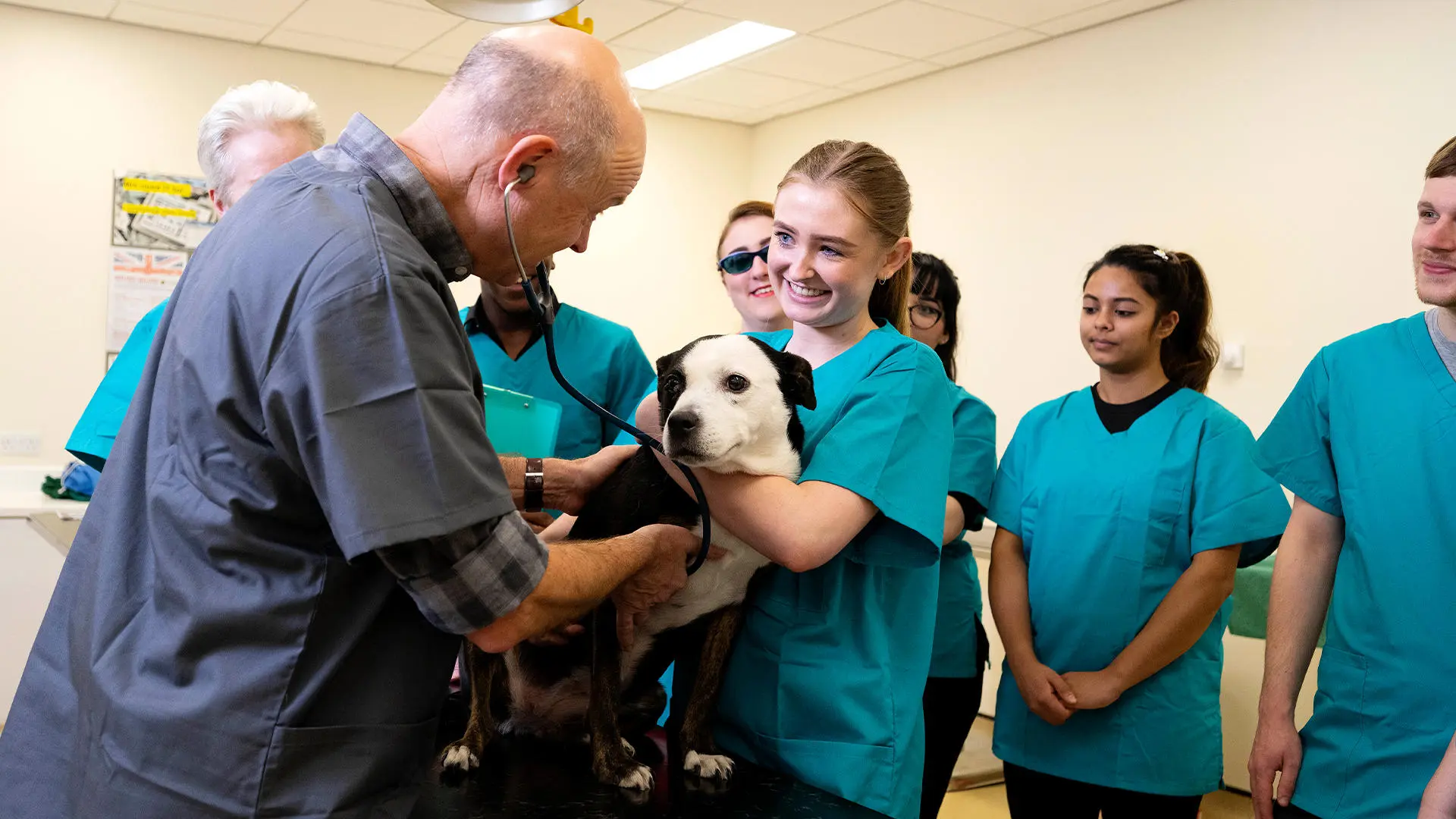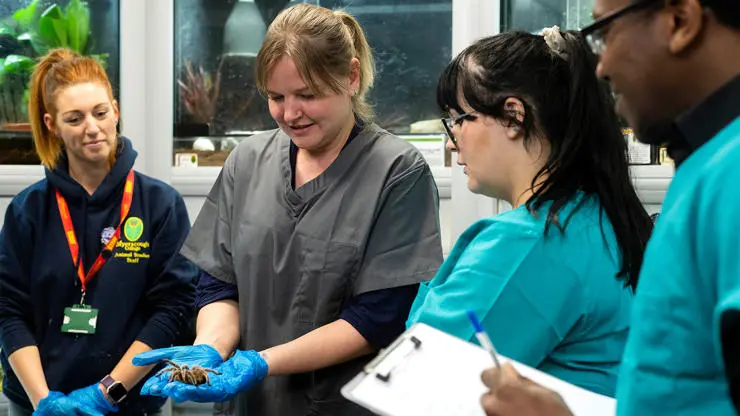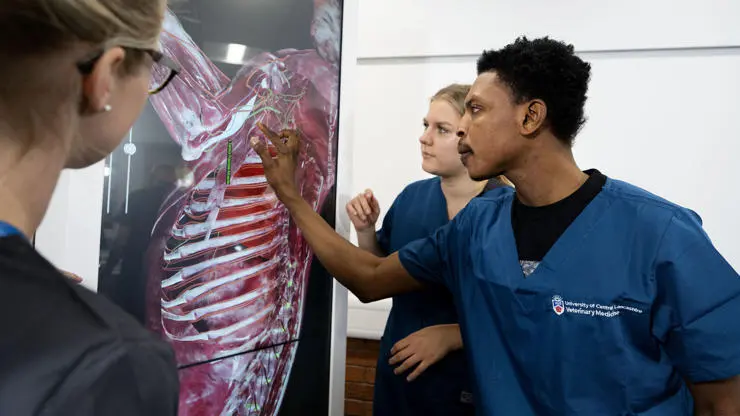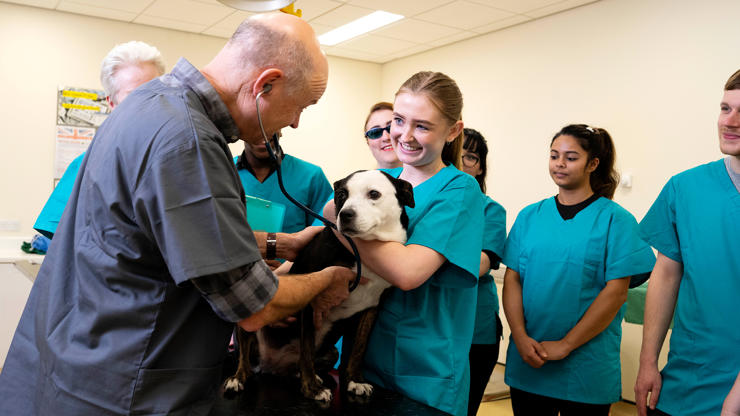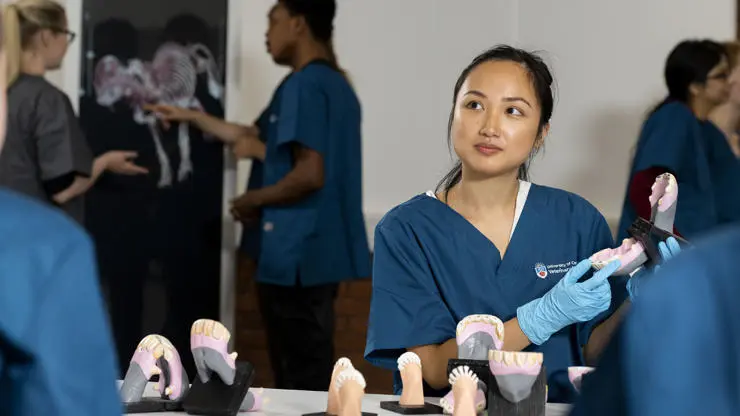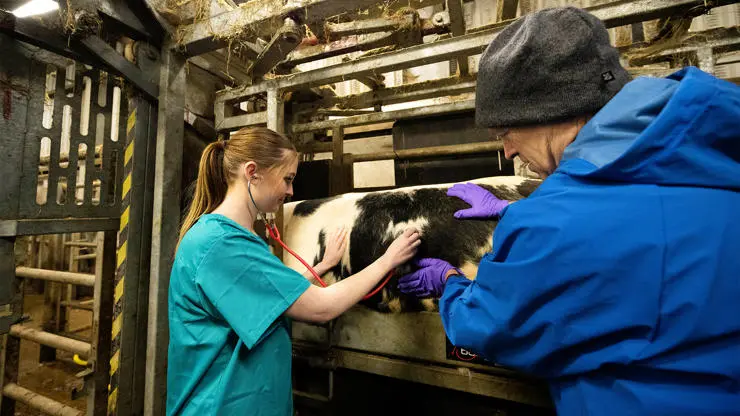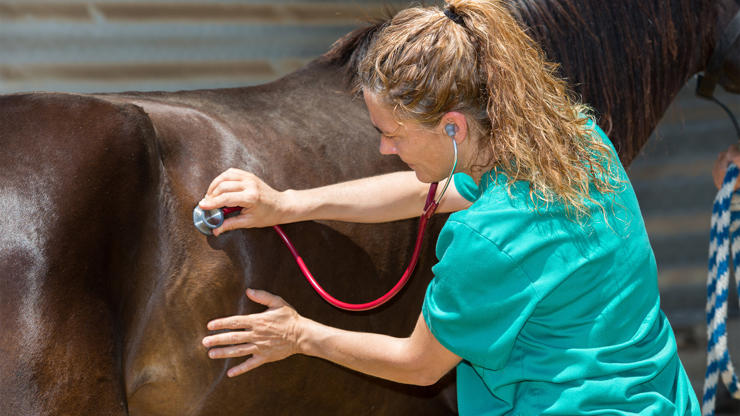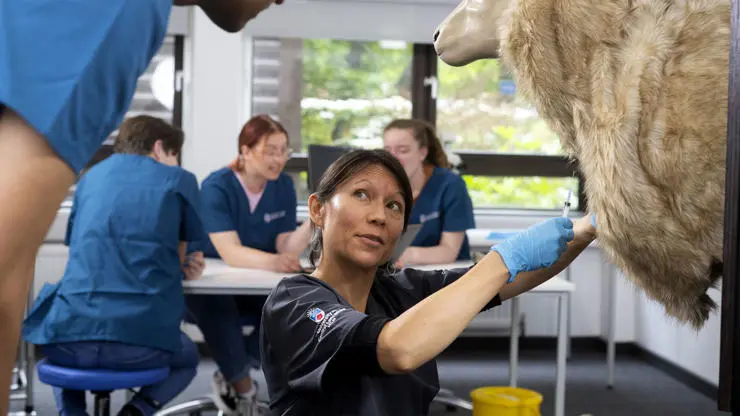Would you like to become a vet but don't have a science background? Open up the possibility of an exciting veterinary career with our gateway to veterinary medicine course.
Why study with us
- A bespoke course preparing you to apply to veterinary school.
- Integration of science with animal husbandry and welfare experiences.
- Focus on personal development, academic skills and support with application preparation.
What you'll do
- You’ll be embedded with the veterinary school with access to our newly developing teaching facilities.
- You’ll be taught by the same academic team responsible for veterinary admissions and teaching.
- You’ll be supported to develop your full potential regardless of your background.
Modules
Every effort has been made to ensure the accuracy of our published course information. However, our programmes are subject to ongoing review and development. Changing circumstances may cause alteration to, or the cancellation of, courses. Changes may be necessary to comply with the requirements of accrediting bodies or revisions to subject benchmarks statements. As well as to keep courses updated and contemporary, or as a result of student feedback. We reserve the right to make variations if we consider such action to be necessary or in the best interests of students.
Meet the team
Entry requirements
We will consider your educational achievements, predicted grades, work experience and personal statement. If you don't meet the grades for your chosen course, we will consider you for other programmes.
We know that many factors can influence the grades you achieve in school or college. If your life experience has affected your academic studies, we can take this into account. Use the UCAS Points Calculator below to check whether you are eligible.
Unsure if you meet our entry requirements? Contact our friendly Course Enquiries team to talk through your options.
- BBB at A2
- DDM BTEC Extended Diploma
- T Level at merit or above in any subject
- 5 GCSES at grade C/4 or above including Maths and English
- IELTS 6.5
Use our UCAS points calculator
Progression from your foundation year
Completing the foundation year (Year 0) of this programme does not guarantee automatic progression to Year 1 of our standard BVMS programme.
Fees and funding
Scholarships and bursaries
We have a wide range of bursaries, scholarships and funds available to help support you whilst studying with us.
Select your country to see eligibility information and how to apply by selecting more info on the cards below.
Care Leaver Bursary
Our Care Leaver Bursary is for students who need extra support because they have been in care or are estranged from their parents.
Find out more about Care Leaver BursaryEstranged student support
Estranged Student Support Bursary is for students who need extra support because they are estranged from their parents.
Find out more about Estranged student supportDependants Bursary
Students with financially dependent children may be eligible for our Dependants Bursary as part of our financial support package.
Find out more about Dependants BursaryFoundation Year Bursary
Our Foundation Year Bursary scheme is for students starting a four or five year undergraduate degree programme.
Find out more about Foundation Year Bursary
Future career as a veterinary surgeon
This course is designed to prepare you for further study on our five-year Bachelor of Veterinary Medicine (BVMS). It also offers progression into other science and animal management careers. The course opens the door to apply for a range of health and science-related courses.
Graduates of the BVMS course will be able to work as UK registered veterinary surgeons. Subject to successful licensing by the RCVS.
Partner college
The Royal College of Veterinary Surgeons (RCVS) quality assures veterinary degrees at UK vet schools by means of specific accreditation standards. Graduates from accredited schools join the RCVS Register as members. Allowing them to practise veterinary surgery in the UK.
The University of Central Lancashire and the RCVS are working together to ensure that the new degree meets these standards. And that graduates will be eligible for registration. Under the Veterinary Surgeons Act 1966, veterinary degrees must have a “recognition order” from the Privy Council before graduates can automatically be eligible for registration with the RCVS.
The Privy Council will take advice from the RCVS on this. The process takes a number of years. Full approval cannot be considered until the RCVS undertakes a formal inspection of the full course and its standards in 2028. This is when the first cohort of students will have completed their degrees.
Until that time, the School is liaising regularly with the RCVS to ensure that progress towards accreditation is maintained.
Should any unforeseen issues arise, the Veterinary Surgeons Act includes a provision to help ensure that those completing their final exams in an as-yet-unapproved degree may still be allowed to register. In that, the Privy Council may invite the RCVS to set examinations for any students attending a non-approved UK veterinary degree course. Or alternatively, appoint RCVS External Examiners to oversee the standard of the final year examinations. Students who pass the RCVS-controlled examinations would then be able to register with the RCVS and practise as veterinary surgeons in the UK. Regardless of the outcome of the degree’s accreditation process. This is in line with the arrangements for any new veterinary degree programmes.
This course is delivered by the School of Veterinary Medicine
For information on possible changes to course information, see our essential and important course information
You can find regulations and policies relating to student life at the University of Central Lancashire on our student contract page

